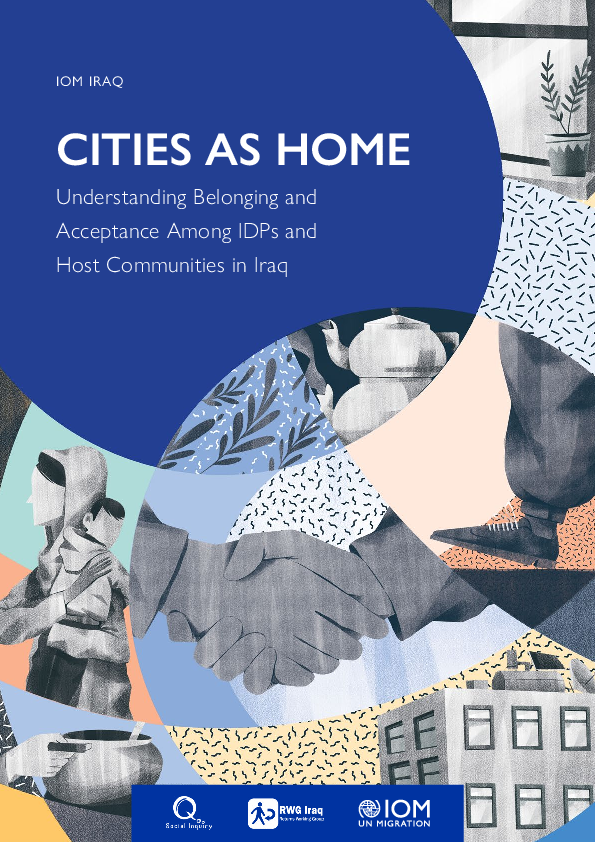-
Countries
-
Data and Analysis
-
Special Focus
-
Crisis Responses
Iraq – Cities as Home: Understanding Belonging and Acceptance Among IDPs and Host Communities in Iraq (2020)

Contacter
DTM Iraq, IraqDTM@iom.int
Langue
English
Emplacement
Iraq
Période couverte
Jan 01 2019
Dec 31 2020
Activité
- Survey
In order to contribute to the measurement of local integration of internally displaced persons (IDPs) in Iraq, IOM Iraq, the Returns Working Group, and Social Inquiry implemented an in-depth study of 14 urban locations in the country hosting a high density of families displaced due to the ISIL conflict. A complementary forthcoming study on Urban Displacement in Iraq, by IOM Iraq DTM, explores protracted urban displacement, including an examination of IDP intentions. Utilising data collected on IDPs' perceptions and living conditions in displacement (1,382 respondents) and on those of host community residents (1,437 respondents) in the same neighbourhoods as well as key informant interviews with local authorities and policy-implementers (40 interviews) in these areas, this work seeks to identify which factors help or hinder local integration – and those locations that are more (or less) conducive to this outcome. This study is predicated on the understanding that local integration is not only based how on IDPs perceive their own belonging in the hosting location, irrespective of any stated intentions to stay or return, but also how host communities feel about accepting them. Further to this, these feelings may themselves be influenced by the character of the urban areas where IDPs and host communities reside as well as the regulatory environment surrounding them.
This report is part of a larger research project, Cities as Home, carried out by IOM Iraq, the Returns Working Group, and Social Inquiry, that explores both drivers and deterrents of integration across 14 urban locations that still host the largest share of IDPs in the country. The outputs of this project also include factsheets for each location, four detailed case studies, and a brief on COVID-19 regulations and implications for local integration
